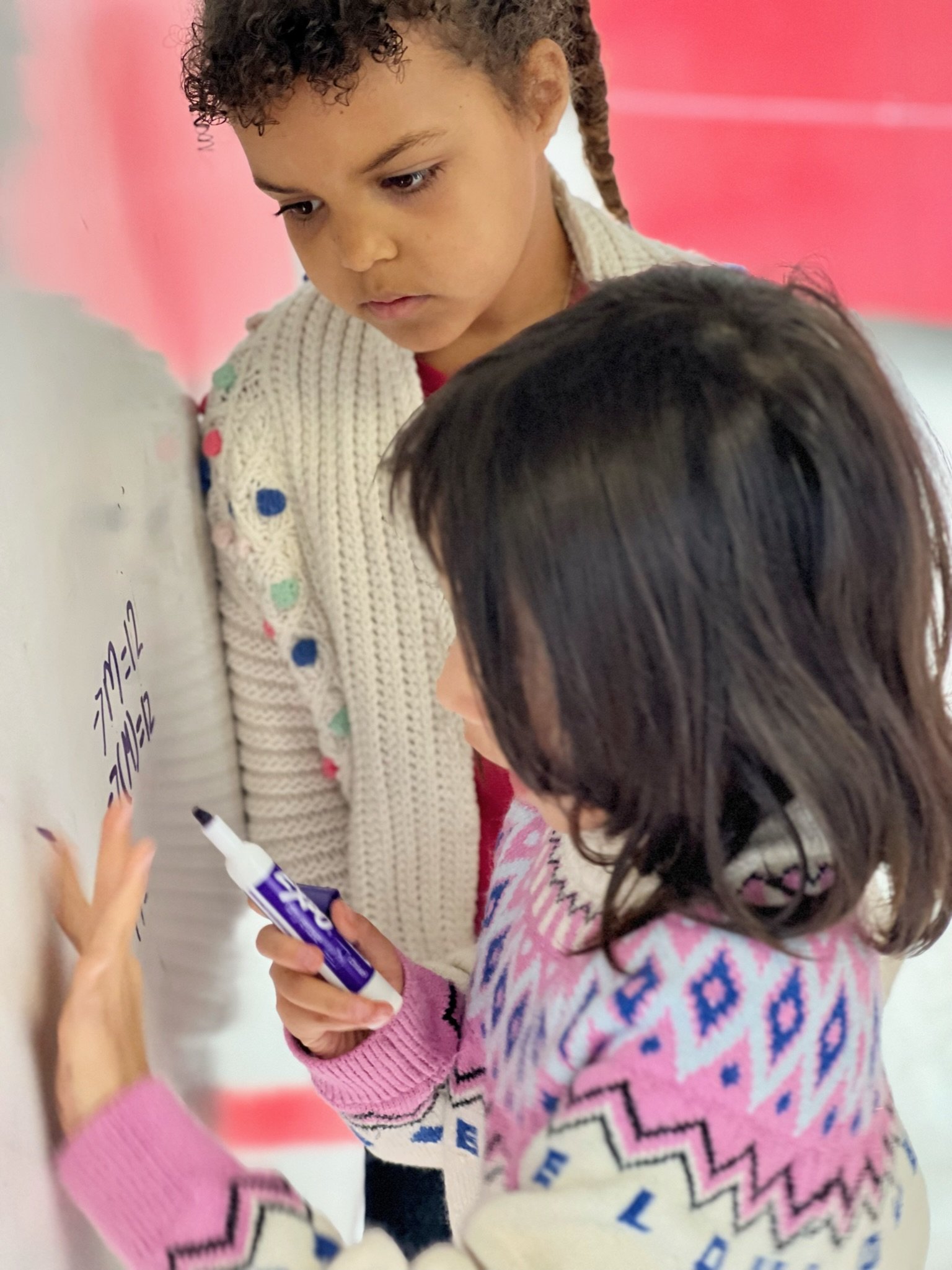Our Assumptions and How They Create a Focus on LEARNING
At Long-View we are not trying to be another school or just “do school,” but rather we are working very purposefully to create an environment focused on learning.
We define learning as constructing knowledge together. The most important part of our pedagogy is that we are reasoning together, trying to understand something together at a deep level. Everything we do works to create a culture centered around this idea. Rooted underneath that work and culture are the assumptions we make as we approach learning and teaching.
We assume children have significant capacity for understanding.
We take student thinking seriously and it is a core aspect of classroom work.
We do not focus on grade levels or ages when grouping children or planning content because we assume that this focus can, at times, limit learning opportunities.
We hold an optimistic view of a child's ability to learn and the potential for change; we then assume that the quality of teacher-child interactions will support growth in cognitive and motivational aspects.
“Behavior management” is not something we think about or do. We assume independence and that kids can manage themselves. But we teach into that if things break down.
We give responsibility for learning to the learner and we directly teach into this end, scaffolding as needed for age, experience, or motivational factors. Responsibility for learning entails taking more control over your own mental activity and believing that ultimately you are responsible for your own learning and that you can affect the level of your learning.
We assume deep understanding derives from being a producer.
The “products” of learning that we most value are intellectual products that are generated by the learners, including collective knowledge. For example, kids create their own algorithms for solving math problems. They design their own investigations in science and generate their own ideas in writing. They aren’t doing rote work.
We see each discipline as a connected set of ideas with authentic practices and we plan classroom content and experiences consistent with this view.
“How and why” are important and teachers engage learners in discourse that helps them make sense of the how and why and develop more sophisticated ways of seeing the discipline and thinking within the discipline.
We assume learning is more powerful when it occurs as a community endeavor.
We structure classrooms as learning communities in which the construction of knowledge is supported as a common goal. Learning occurs by constructing knowledge together, not by “being taught.”
Discourse is a key pedagogical practice as it makes thinking visible (to teacher and peers), allows for rehearsal of thinking, and makes misconceptions clear so they can be discussed and change can be supported.
We make much of the learning and thinking public. Work is often analyzed by peers in order to both advance the knowledge of the entire community as well as enhance the individual’s learning.
We assume a person’s learning should be directed not just to the present, but also to the “long view.”
The content and the experience of the content should lead children to discover the deep principles of the domain and to develop flexible learning and inquiry strategies of wide applicability.
Discipline-based learning experiences target the enhancement of cognitive processes and learning mindsets.
Beyond deep understanding of content knowledge, we want children to leave with high-level skills in the area of communication, creativity, collaboration and critical thinking.
We work to instill an attitude and mindset that learning is the learner’s work to do and that he/she drives his/her own learning.
We think carefully and purposefully about what we do. And we work very hard to create a coherent experience for our learners across their days and years at Long-View. These assumptions and this coherence are what helps us create a transformative learning experience for our children.




